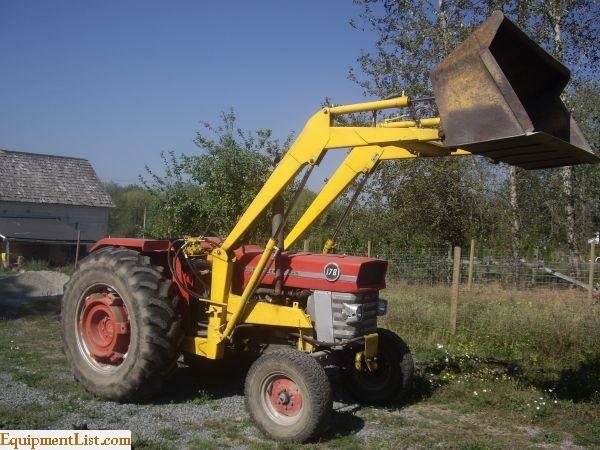

Your county extension agent can suggest appropriate publications, courses, and meetings. It will be to your advantage to make a continual effort to become educated in both production practices and management techniques. The taxpayer’s pursuit of knowledge concerning his or her business activity.
#Hobby farm tractor professional#
(If you are inexperienced, you might consider hiring a professional manager or consultant to give credibility to your claim.) The extent of your background in farming will be weighed carefully. The expertise of the taxpayer or of his or her advisors. Naturally, being able to show that you’ve devoted an impressive amount of management time and physical labor to your hobby will be to your advantage. The time and effort the taxpayer expends in the business. An auditor may disallow losses, though, if it appears that your activities are “preparatory” to carrying on an enterprise instead of constituting “on-going” business. The IRS will also note any strategies you’ve used in attempts to make a profit. Is it businesslike? Are detailed financial records kept? Are those records separate from those of personal financial activities? (For instance–although many full-time commercial farmers fail to do so– you should keep a separate checking account for your agricultural activities.) The manner in which the tax-payer conducts his or her farming activity. The following factors will usually be considered by the IRS when judging whether or not to challenge a deduction for losses: Well, you may still be able to produce sufficient evidence to prove the profit motive, should the government decide to investigate your tax returns. However, suppose you’ve tried to put your agricultural operation into “the black” and found that it just couldn’t be done within five years. showing, or racing horses … you have seven years in which to demonstrate two years of profit.) Other Considerations

(By the way, if your farm activity consists of breeding, training. Thereafter, the IRS has the burden of proof in any related charge that may be levied against you. The regulation allows a farmer or part-time entrepreneur to elect –in advance–a five-year period of time in which to show ability to make a profit.Īfter you’ve demonstrated that you have a profit motive by coming out “in the black” on any two of the five consecutive years, it will be presumed from then on that you’re engaged in the activity for that purpose. However, doing so may not be an easy task for the man, woman, or family just starting out on a homestead.Īs an aid to such farmers, a “two out of five years” tax rule was enacted in 1969 and revised in 1976. If you can simply demonstrate a profit motive to the government, you will be allowed to deduct your farming losses from your non-farm income.Īnd about the best way I know to show a profit motive is to have records of the net income from your farming activities over a period of time. However, there is hope for the good-intentioned part-time farmer. This section was–presumably–created by the IRS to dissuade individuals from purchasing unprofitable properties for use as tax write-offs.
#Hobby farm tractor code#
In particular, you ought to become acquainted with the “hobby farming rules” of Internal Revenue Code Section 183, which state–in effect–that the government won’t allow you to claim any loss incurred through hobby or pleasure activities as an offset against other taxable income.

If you’re a homesteader who also works a full-time job away from the farm, or if like many of MOTHER EARTH NEWS’ readers you engage in a “bootstrap business” for extra income, you should be aware of some special regulations set down by the government’s Internal Revenue Service. To claim expenses from hobby farming as a tax deduction, you need to demonstrate that you turned a profit from your farming activities or where trying to.


 0 kommentar(er)
0 kommentar(er)
